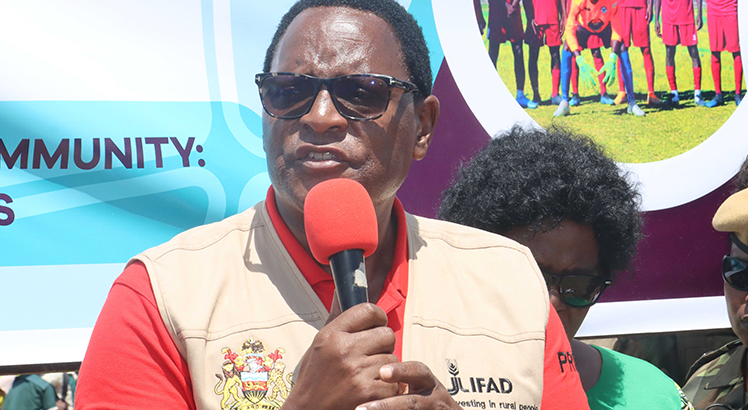Sadio Mane joins Malawi’s fight against HIV
English Premiership outfit Liverpool’s forward Sadio Mane will become a star of the small screen to help fight the spread of HIV and Aids in the country.
A local youth activist Christopher Misuku has since hailed the senegalese international for the initiative.
According to www.liverpoolecho.co.uk, Liverpool Football Club’s official charity, the LFC Foundation, and the Liverpool School of Tropical Medicine (LSTM) have launched a joint programme to encourage youngsters in the country to access education and health services to help in the fight against HIV and Aids.
Mane is lending his support to the new programme after visiting the LSTM last December to find out more about it.

“It’s an initiative that is close to my heart,” said the Senegalese international. “It’s something that I am very happy to do. It’s important to help people.
“They approached me about the initiative, and it became clear I was maybe the right person to help. When they told me about it, I was very, very happy to help out. I’m looking forward to doing my bit,” he said
As part of the programme, Mane has recorded a special message that will be shown to young males in the country demonstrating how they can use a swab test on themselves to test HIV.
“Many young people in the African country have low levels of awareness and are therefore more likely to contract it or be living with it unknowingly,” reads part of the report.
Mane was on hand to help officially launch the new programme—which has been 18 months in the planning—at Anfield Sports and Community Centre, where he attended a training session with coaches from Malawi and the LFC Foundation.
As part of a week-long visit by the Malawi team recently, foundation coaches provided essential skills needed to deliver a range of high-quality sports sessions with youngsters back in Malawi.
The LFC Foundation and LSTM will work together to deliver sports-based public engagement activities in Malawi to provide more platforms for young people, particularly the key group of young males aged between 14 and 22 who are least likely to access health education and services such as self-testing and treatment plans.
According to Misuku, it is good to promote the message on the fight against the spread of HIV because although Malawi is making progress in the fight, there are still many people, especially the youth, that are contracting the virus.
“This initiative will add value to the Global 90 90 90 Strategy which aims at ensurring 90 percent of people know their status, enrol on reteroviral treatment [ART] and have their viral load suppressed for sustainable development,” he said.
In Malawi, the number of people living with HIV is one of the highest in the world and young people account for 50 percent of new infections and incidences are highest among 15 to 17-year-olds.n





